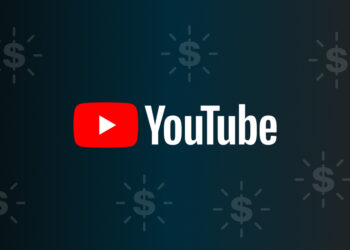Google said it’s working on changes to stop websites making money via Adsense. Facebook announced it would not serve ads in apps or websites “containing content that is illegal, misleading or deceptive, which includes fake news.”
But is that enough? Are these fake news websites are looking for money via advertising? Or they might be funded by who benefit from fake news being circulated? In case i’m not clear, Trump can pay them instead.
See these evidences, to know what i’m talking about:
FYI: This page is verified by Facebook. Almost nothing it posts is true. pic.twitter.com/HNRPTgRFrs
— follow @bencollins on bluesky (@oneunderscore__) November 15, 2016
This Facebook trending story is 100% made up.
Nothing in it is true.
This post of it alone has 10k shares in the last six hours. pic.twitter.com/UpgNtMo3xZ— follow @bencollins on bluesky (@oneunderscore__) November 14, 2016
This story is totally made up.
Over 4,000 shares on Facebook from three different accounts in 22 hours. Trended accordingly. pic.twitter.com/GNoVJQVxnd— follow @bencollins on bluesky (@oneunderscore__) November 15, 2016
This story is made up.
This happened in 2015, and had nothing to do with Trump.
This post of it alone has 8k shares in the last seven hours. pic.twitter.com/mEXlQoEYqC— follow @bencollins on bluesky (@oneunderscore__) November 14, 2016
Trump won the elections guys, this is priceless.
Facebook CEO is in denial
While it’s crystal clear that Facebook is one of the main reasons Trump made it to the white-house, because of the crazy number of fake news and hoaxes causing Clinton and supporting Trump, Facebook CEO, Mark Zuckerberg is still in denial and refuses to admit it.
Mark Zuckerberg has separately denied that fake news spread on his social network contributed to the election’s outcome. At the time, he said “99%” of posts were genuine. But he soon announced policies to help tackle the issue. And Facebook’s own employees reportedly formed a task force to try and stop the spread of fake news.
Neither company has outlined precisely how the vetting process will work, but Facebook said it would check publishers for compliance.
The announcements come as Google chief executive Sundar Pichai admitted to the BBC that fake news spread on the search engine and on social networks could have swung the election in Donald Trump’s favour.
“You know, I think fake news as a whole could be an issue,” he said. “From our perspective, there should just be no situation where fake news gets distributed, so we are all for doing better here.
“So, I don’t think we should debate it as much as work hard to make sure we drive news to its more trusted sources, have more fact checking and make our algorithms work better, absolutely.”
In one notable example, Google’s top result for “final election results” at one point showed a fake site with inaccurate numbers, according to reports.
Is it enough to ban fake news websites from advertising revenues?
Again, I think it’s not enough, there will always be alternative revenue streams, so practically this move is not enough. Reducing reach is the best way to prevent fake-news websites from popping out. If Google, Twitter, Facebook and other websites flagged fake news efficiently, then there would be no reason to create fake news sites in the first place, as they will be useless for anyone to rely on.





